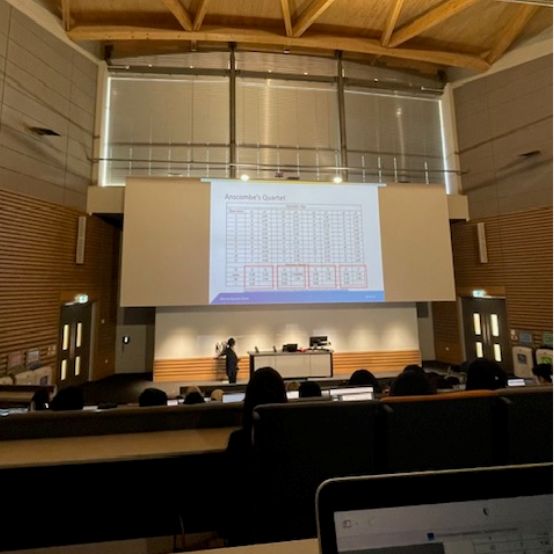Undergraduate student, Eshaan, shares their top tips for tackling exam season.
Exam Preparation Checklist
Undergraduate student Laura shares her practical tips for effective exam preparation and achieving success.
Navigating exams can be a rollercoaster, right? In this blog, you will explore my exam prep checklist. Over the years, I have developed a comprehensive checklist to ensure I cover all bases and perform at my best. Here is a glimpse into my exam preparation routine.
Strategic Study Schedule
Crafting a study schedule is crucial. Realistic time allocations and clear goals keep me on track. Breaking down the syllabus of each subject into manageable sections makes the workload feel less overwhelming.
Weekly Topic Recap
Before diving into the deep end of intense studying, review the topics covered each week for each subject. This helps me create a mental map of the course progression and identify gaps in my understanding. This initial reading is not about diving into the details; it's a gentle revisit to jog my memory about the materials.
Subject-Specific Strategies
For each subject, I tailor my approach. Here are two outlines I created for my past exams:
Finance
- Summarise lecture slides

- Review class notes
- Create a formula sheet
- Revise and re-do seminars
- Practice past papers without timing (comparing with friends)
- Do at least four past papers within the hours permitted on the exam
Marketing
- Summarise lecture slides
- Revisit readings and notes
- Combine lecture notes and readings in mind maps
- Prepare past papers
- Formulate potential exam questions
Effective Study Tools
Discover what works best for you. Perhaps some of the strategies below will resonate with you, or they might spark ideas to tailor them according to your preferences:
Flashcards
These help to reinforce key concepts and facilitate quick recall. They are easy to move around. For example, I often bring flashcards and explain them to a friend at the library, or I’ll read them through them while having dinner.
Teaching concepts to friends
I find that explaining the theory to friends is very effective. Articulating concepts to others consolidates my knowledge and highlights any gaps or uncertainties that may require additional exploration and study.
Understanding Exam Formats
Familiarity with the types of questions and marking schemes is indispensable. I always set aside time to dive into past papers. It is important to know the structure of an exam, as it allows me to approach each question strategically and understand which concepts are more relevant.
Managing Stress and Well-being
Finally, I want to mention how important it is to manage stress and not isolate yourself for exams.
Scheduled Breaks
No marathon study sessions here. Regular breaks maintain focus and prevent burnout. Taking time to recharge allows me to come back to my materials with a fresh perspective and renewed energy. It's all about finding that sweet spot between productive study sessions and giving myself the breather, so that I can stay on top of things!
Prioritise Sleep
A well-rested mind is way more efficient. I know sometimes we don’t follow completely our initial plans or on the last day we think we should revise more. Nevertheless, I always make sure to get enough sleep the night before the exam. Pro tip: Mentally trick yourself into thinking the exam is a day earlier, so on the actual day you're calm and ready for revision.
Positivity Reigns
Celebrating small victories, whether completing a topic or finishing a reading, reinforces a positive mindset. It's about acknowledging progress in the journey.
So, there you have it – my ultimate exam prep checklist and tips. Remember, it's not just about surviving exams, it's about mastering them with style. Good luck to all students with the coming exams and I hope I could help you with this guide!
Find out more about our Undergraduate courses.




 X
X Facebook
Facebook LinkedIn
LinkedIn YouTube
YouTube Instagram
Instagram Tiktok
Tiktok